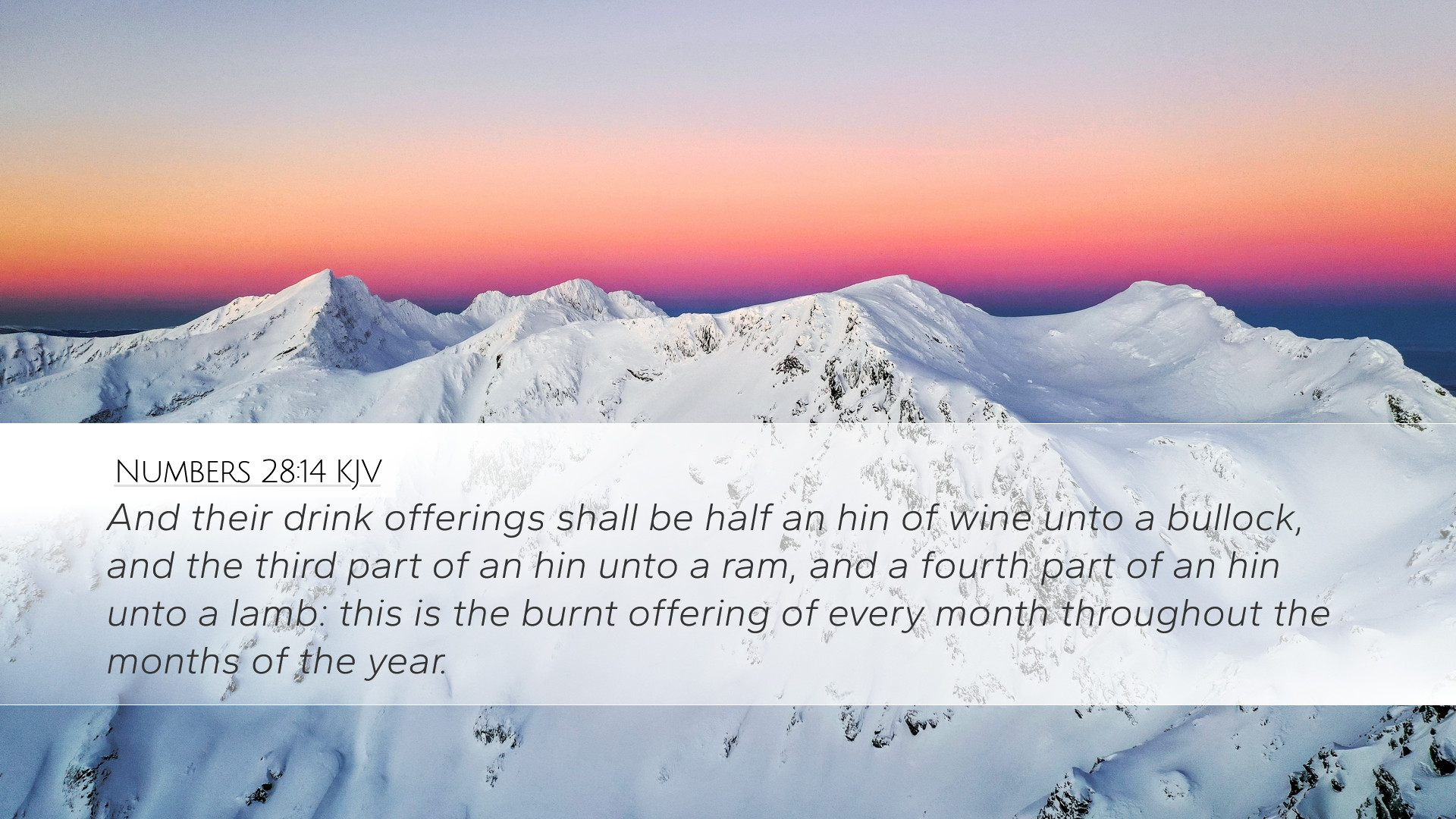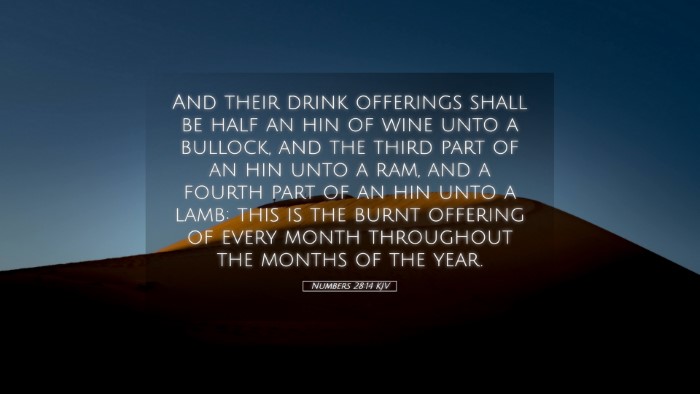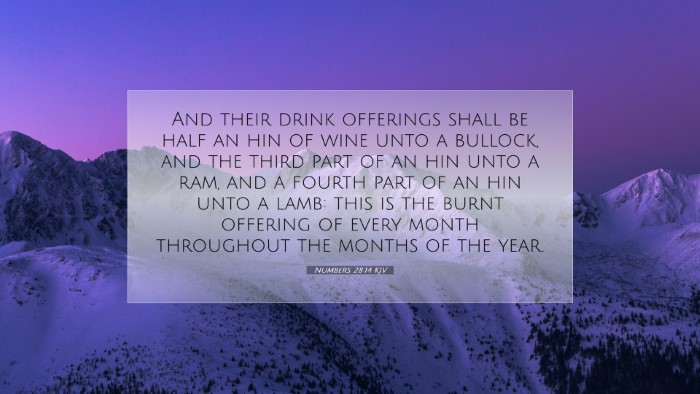Numbers 28:14 Commentary
Verse: "And their drink offerings shall be half an hin of wine unto a bullock, and the third part of an hin unto a ram, and a fourth part of an hin unto a lamb: this is the burnt offering of every month throughout the months of the year."
Introduction
The passage of Numbers 28:14 outlines specific instructions for the drink offerings associated with the monthly burnt offerings. In understanding this verse, we will explore its significance in the context of the Mosaic Law and its centrality in Israel's worship of Yahweh.
Contextual Background
The book of Numbers details the order and practices that governed the Israelite community during their wilderness wanderings. This specific instruction concerning drink offerings comes within a larger discourse on the sacrificial system, which was pivotal in maintaining the covenant relationship between God and Israel.
Hebrew Significance
In the Hebrew culture, both offerings and sacrifices were not mere rituals devoid of meaning. They represented deep spiritual truths and were meant to signify devotion and dependence on God. The word "drink offering" (מִנְחָה - “minhah”) implies a tribute or gift offered to honor God, reflecting the people’s gratitude and recognition of His providence.
Analysis of Offerings
Numbers 28:14 specifies the quantity of wine for drink offerings tied to different sacrifices. Each amount corresponds to the significance of the sacrifice being made.
- Bullock: A drink offering of half a hin signifies the weightiness and importance of the truth embodied in the sacrificial bullock, a large and valuable animal in ancient Israel.
- Ram: The lesser quantity for the ram (a third part of an hin) emphasizes the ram's role in the sacrificial order, marking the transition from a greater to a lesser offering.
- Lamb: The smallest measure for the lamb exemplifies how varied offerings reflected differing degrees of worship and commitment.
Theological Implications
This verse not only illustrates the practical aspects of worship in ancient Israel but also conveys profound theological truths.
- Covenantal Remembrance: These offerings served as a reminder of the covenant between God and His people. Each month, as the offerings were presented, Israel was reminded of God’s faithfulness and the necessity of atonement.
- Joy in Sacrifice: The inclusion of wine, a celebratory libation, reflects the joy and gratitude inherent in acknowledging God’s provision and presence.
- Symbol of Completeness: Each type of offering—the bullock, ram, and lamb—demonstrates a spectrum of worship that acknowledges God’s complete dominion over different aspects of life and faith.
Insights from Commentaries
Matthew Henry
Matthew Henry emphasizes that the regularity of these offerings strengthens the believer's obligation to communicate with God continually. He notes that the setting aside of a monthly observance is critical in reminding Israel of their ongoing need for divine guidance and grace.
Albert Barnes
Albert Barnes elaborates on the details of the drink offerings, highlighting their significance within the broader sacrificial framework. He notes that the precise measurement demonstrates God's intention for the people to approach Him with care and reverence, respecting the divine order in worship.
Adam Clarke
Adam Clarke draws attention to the symbolic nature of wine, indicating its connection to joy and abundance. Clarke suggests that the drink offering was both a literal and figurative means of pouring out one's heart to God, establishing a vital connection between human experience and divine responsiveness.
Practical Applications
Understanding Numbers 28:14 can inform contemporary worship practices and personal spirituality. Here are several applications:
- Sacrificial Living: Just as Israel was called to submit specific sacrifices, modern believers are invited to live sacrificially, offering their time, talents, and treasures to God.
- Regular Worship: The consistency of the monthly offering serves as a reminder to believers today of the importance of regular engagement in worship, reflection, and gratitude.
- Communal and Personal Acknowledgment: As drink offerings were made collectively, it teaches the importance of unity in worship within the church body while also affirming the need for personal devotion.
Conclusion
Numbers 28:14 serves as an instructive passage within the broader narrative of Israelite worship. It captures the essence of a life oriented towards divine recognition and the importance of regular offerings in maintaining a covenant relationship with God. Insights drawn from historical interpretation reveal an intricate balance of reverence, joy, and obligation in responding to God’s mercy and grace.


